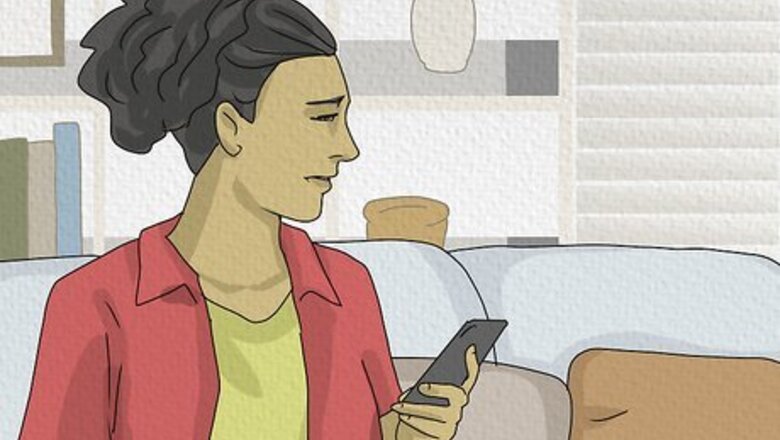
views
- If a guy distances himself after sex, it could be because he wants to take things slow, he has a super busy schedule, or he struggles with intimacy issues.
- When a guy distances himself after intimacy, you can reach out to him to get clarity, or you can focus on self-care and moving on.
- If you’re in a relationship, you can build emotional intimacy with your partner by talking about your feelings, paying attention to their interests, and being consistent.
Why do guys get emotionally distant after sex?
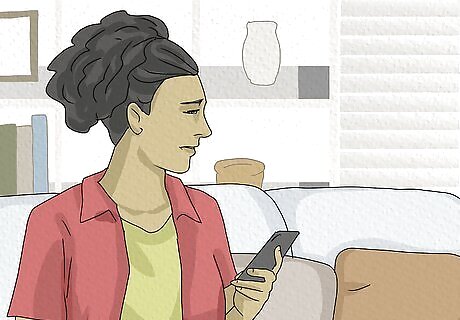
He wants to take things slow. If a guy pulls away after intimacy, it might be because he thinks things are moving too fast. Don’t worry if a few days have passed since you last saw each other—he might just be taking his time to be sure of his feelings for you. This isn’t a bad thing! Taking things slow can increase the chances of a successful relationship because it helps ensure a strong foundation.

He doesn’t know how you feel about him. If a guy goes radio silent after sex, he could be distancing himself because he doesn’t know how you feel. He might be afraid of rejection, so he’s pulling away to protect his emotions. If this is the case, he might be waiting for you to reach out, rather than taking that leap himself.

He’s worried you didn’t enjoy yourself. Everyone feels a little insecure sometimes, and it’s possible he’s concerned about his performance during intimacy. If he’s worried that you didn’t have a good time, this could make him feel anxious or depressed, which could be keeping him away.

He’s genuinely busy with his personal life. Sometimes, the explanation is as simple as a busy schedule. If a guy has a lot on his plate with work or family commitments, he might not have the time to be super present. He could be busy with anything, from a high-pressure job to demanding elderly parents. If this is the case, he could reach out when things calm down. Either way, it has nothing to do with how he feels about you—external factors are just making things tough for him.

He needs his space. Some guys have a fear of being smothered, which makes them pull away even when they like you. Guys who have this fear tend to show mixed signals and might get into on-again-off-again relationships. If you feel like he is constantly flipping between showing you lots of attention and emotionally withdrawing, this could be the reason.

He isn’t ready for a relationship. A guy might distance himself after sex because he wants to keep things casual. He might not have the space for a relationship in his life right now, so he could be pulling away to make sure he doesn’t give you the wrong signals or lead you on. It might hurt at first if he isn’t ready to commit, but in the long run it will protect you from being in a relationship with someone who isn’t all in.
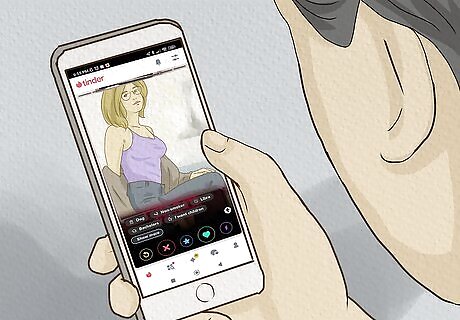
He wants to play the field. It’s possible that he wants to date around and meet lots of people, which could be why he is pulling away. With online dating and dating apps being so common, the whole dating scene can seem like a marketplace where people prefer to shop around, rather than commit. Remember, if this guy is dead set on playing the field, this has nothing to do with how special you are as a person. Sometimes, your dating goals just don’t line up with someone else’s, and that’s okay!
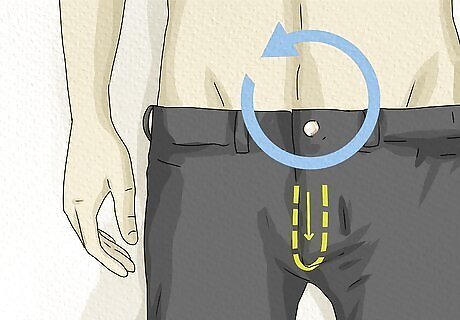
He’s experiencing the refractory period. Immediately after intimacy, men go through a period of “recovery” where their bodies return to their pre-intimacy states. During the refractory period, men don’t think about sex as often, and they don’t get aroused. If a guy seems distant after intimacy but only a few hours have passed, don’t overthink it! He could just be experiencing this normal bodily process. Refractory period lengths vary. For some men, the period lasts only an hour or two, while others need a day or longer. Age also plays a role, with older men typically having longer refractory periods.
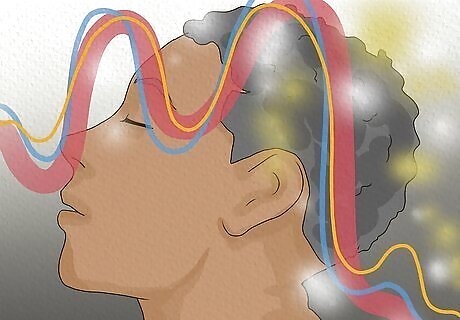
His brain chemistry is different post-intimacy. During sex, your body experiences a rush of happy hormones like dopamine, making you feel energetic and euphoric. This feeling can be so intense that it mimics a drug-induced high, so the after-effects can feel almost like a withdrawal. If he seems distant after sex, he might be experiencing the dramatic drop in these feel-good chemicals. This sudden drop in mood is so common that there’s actually a name for it—postcoital dysphoria, or PCD. Postcoital dysphoria involves feeling sad, anxious, or even depressed after sex. Remember, if the guy you’re seeing experiences postcoital dysphoria, it doesn’t mean you’ve done something wrong. PCD happens for a variety of reasons, and it might just be a personal thing he has to work through. Sometimes, a little patience or space is all he’ll need to feel alright again.
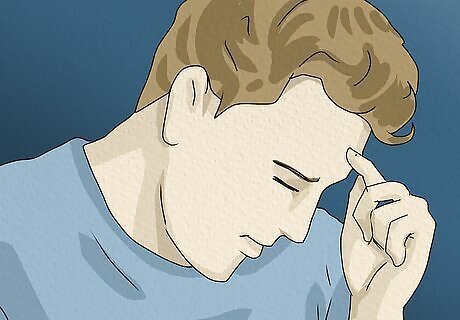
He has low libido. Low libido is a decrease in sex drive that can be temporary or long-term. Tons of different things can cause low libido, including medical conditions, hormone imbalances, certain medications, stress, and aging. It might take a bit longer for a guy with low libido to feel physical desire again after an intimate encounter, which may be why he isn’t reaching out. If a guy seems less interested after sex, it might have to do with one of these health issues, rather than any issue with your relationship.
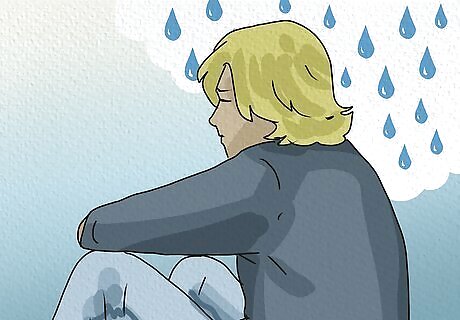
He’s dealing with mental health problems. Low sex drive is a common symptom of mental health disorders like depression. If a guy seems less enthusiastic after sex, or if he’s not scrambling to see you again, a mental health condition could be a factor. Medications like selective serotonin reuptake inhibitors (SSRIs), which are used to treat depression, can cause low sex drive or trouble with arousal, which could contribute to the problem. It’s possible that he’ll need a bit more time to feel aroused again after your intimate encounter, and that’s okay! These issues can be pretty personal and vulnerable, so make sure to let him come to you if he feels comfortable talking about it. Even if you feel pretty sure that he’s dealing with a mental health problem, it’s important not to assume.
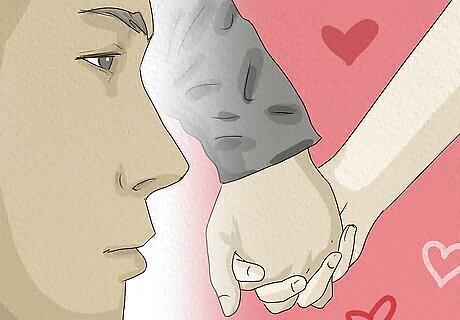
He has commitment or intimacy issues. These issues are complex and could stem from many different causes, like bad past relationship experiences, or a fear of hurting other people. Attachment styles could also play a role, as people with avoidant attachment styles are often more emotionally unavailable in their relationships. Whatever the cause, intimacy or commitment issues can really complicate a relationship and make you feel like you’re in the dark. Don’t feel bad if you can’t seem to figure him out—complicated issues like these often require the help of a therapist or counselor for a real resolution.
What to Do When a Guy Pulls Away after Intimacy
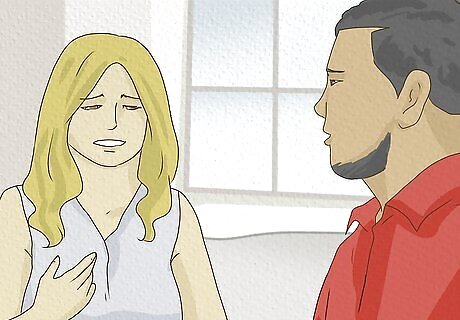
Be honest and upfront. If you find that you still can’t stop thinking about this guy, or if you think that you won’t be able to move on without talking to him, try reaching out. Approach him in a direct and honest way to explain how you’re feeling. If he pulled away because of some kind of miscommunication, a simple conversation might be able to clear things up.

Ask him what he wants. If the guy you’re seeing is the on-again-off-again type, it might help to directly ask him what he is looking for out of a relationship. It’s completely normal to get fed up with mixed signals, so if you don’t feel comfortable with the uncertainty anymore, it could help to ask him for some clarity. Defining the relationship can be daunting, but it could provide you with that extra security you need. Even if you don’t get the answer you were hoping for, at least you’ll know where you stand!
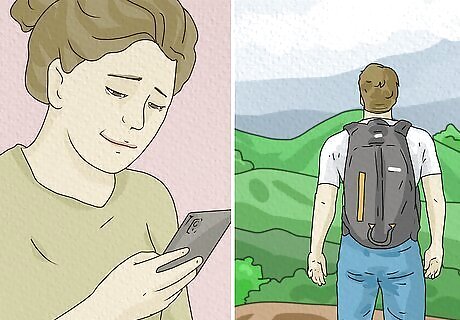
Give him space. Though this may seem counter-intuitive, giving a guy the space he needs might be all it takes to reconnect. If he is experiencing one of the typical post-intimacy effects, like hormonal changes or the refractory period, he might just need a minute to reset. Wait a couple days and see if he reaches out—he could come back refreshed and ready to keep getting to know you.

Be kind to yourself. If it seems like things might be over with this guy, it’s completely normal to feel vulnerable or hurt. Instead of trying to figure out what you did wrong or being critical of yourself, try practicing self-compassion. This involves recognizing when you are struggling and being kind to yourself in those moments, which can reduce anxious or depressed feelings. Here are some tips to build self compassion: Practice mindfulness. Mindfulness involves focusing on what you are feeling in the present moment while avoiding judging yourself. Mindfulness exercises like meditation can help you live in the moment and take your focus away from anxious or depressed feelings. Take care of your body. Doing things that make you feel good physically, like eating healthy or getting a massage, help you feel more compassionate toward yourself. Treat yourself the way you would treat someone you love. Imagine your best friend going through the same thing you’re experiencing. What kind words would you say to them? How would you comfort them? Now direct these words of compassion toward yourself. Remember, you deserve the same type of kindness you would give to others!
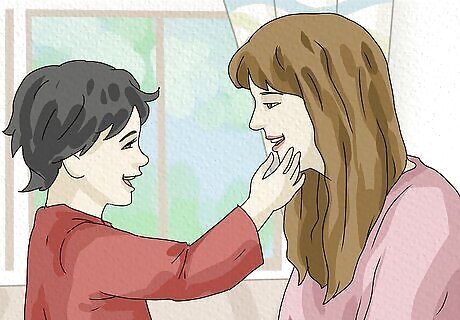
Spend time with loved ones. If it seems like the relationship has ended, it’s totally normal to feel alone. This is a great time to lean on the ones you love. Spending time with friends and family members will help remind you that you have a support system beyond a romantic partner. Although affirmation from a partner is important, your network of friends and family can be a great source of love and comfort too.

Foster your independence. Try new things and visit new places. Having new experiences can remind you that you are in control, and that there are tons of ways to have fun independently. On this same note, avoid immediately going for a rebound. Although it might feel good to get validation from someone new, this might delay your healing and distract you from processing your feelings.
How to Build Emotional Intimacy
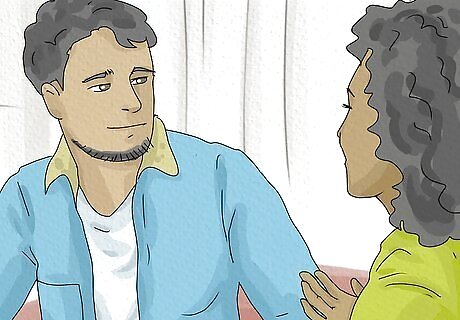
Talk about your feelings. If you’re in a relationship and are hoping to increase intimacy, having conversations about your emotions is a great way to bring you and your partner closer. It takes vulnerability to be honest with someone about how you feel, and doing this together can really increase feelings of closeness and affection. “I really love spending time with you, and my feelings for you are definitely growing stronger.” “Sometimes, when we go a while without talking, I start to feel a little anxious. I’m working through it, but I wanted to share my feelings with you.” “When you remember details I’ve told you about myself, it makes me feel really seen and understood. I really appreciate that you listen to me so closely!”

Build intimacy outside the bedroom. Even when the physical intimacy between two people is amazing, other areas in the partnership can be lacking. When other forms of intimacy don’t accompany physical closeness, this could cause loneliness or isolation. Brainstorm ways you and your partner can show affection for each other other than sex, in order to develop a more balanced and fulfilling relationship. Try planning a unique date that your partner will love. If they love to cook, cook a romantic meal together. If they’re a bookworm, take them to their favorite bookstore and spend the afternoon reading together. This will show your partner that you’ve taken the time to get to know them, which can increase emotional intimacy.
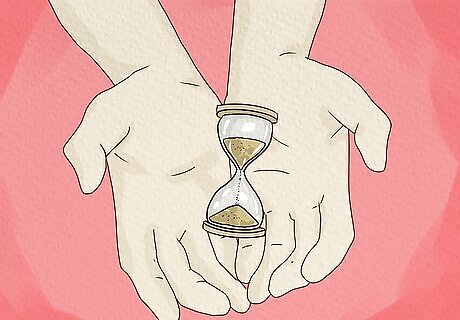
Be patient. Intimacy builds up over time, so don’t be discouraged if you feel like it’s taking awhile for you and your partner to get to the next level. It requires a lot of effort and consistency to become emotionally intimate with someone, so make sure you’re being patient with yourself and your partner.

Be consistent. Emotional intimacy is often about the every-day things, rather than grand gestures. Showing affection for your partner on a day-to-day basis is a great way to build your connection. Simply telling your partner you care, asking about their day, or making them a cup of coffee in the morning can go a long way.



















Comments
0 comment